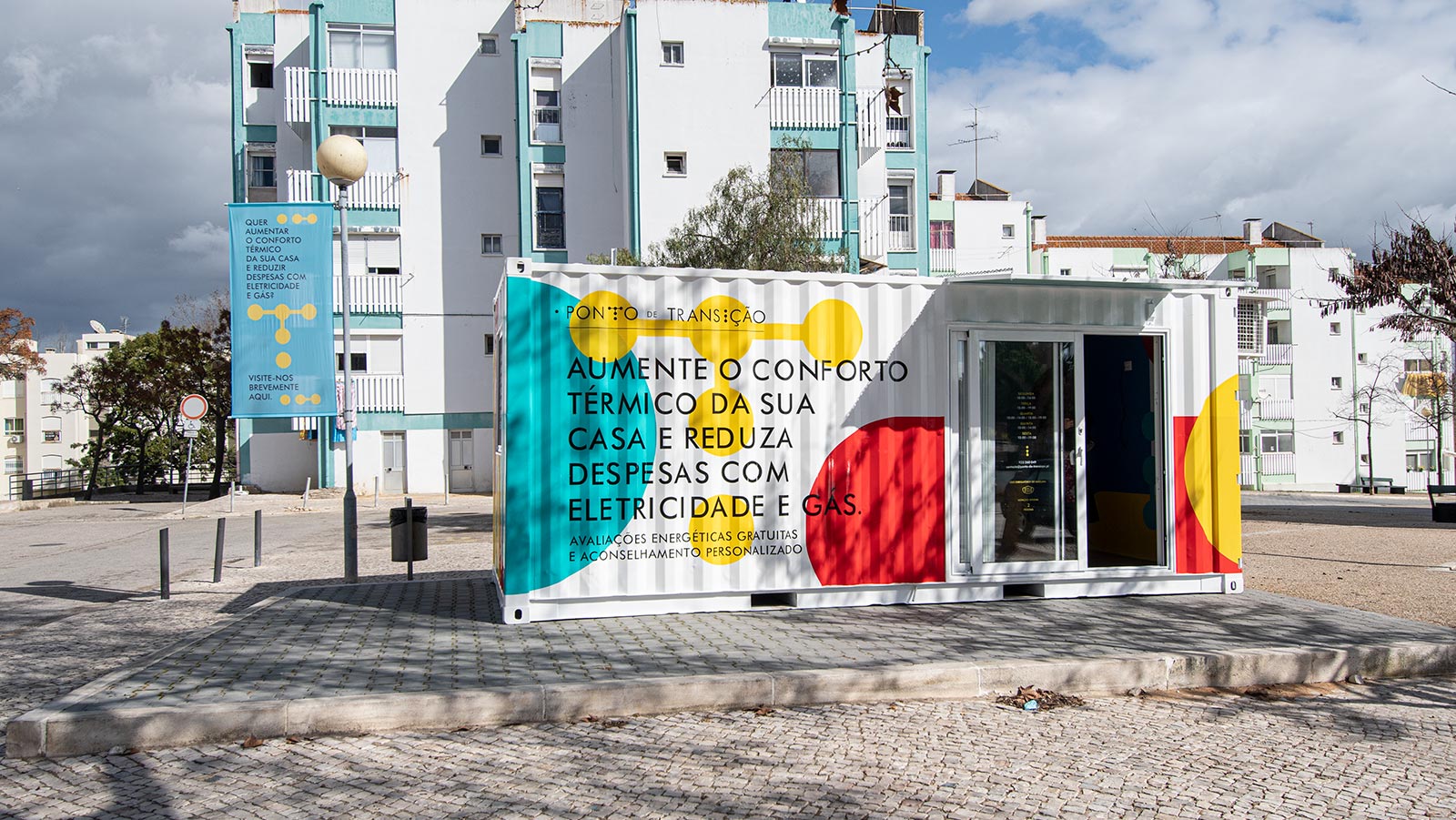A Point for Energy Transition

The Calouste Gulbenkian Foundation created and funded the on-site implementation of a pilot project that, between 2022 and 2023, in the district of Setúbal, sought to accelerate the fight against energy poverty and contribute to a fairer energy transition. The project, which was called Ponto de Transição (Transition Point), has now been mentioned, along with three other projects funded by the Horizon Europe 2020 programme, as a good practice in the field of “citizen support spaces” by the new National Long-Term Strategy for Combating Energy Poverty 2023-2050, which was recently published.
The Calouste Gulbenkian Foundation was present at the public presentation of the National Strategy, organised by the Ministry of the Environment and Action, on 12 January, to promote the project.
Transition Point, an initiative of the Gulbenkian Foundation in partnership with ENA – Energy and Environment Agency of Arrábida, CENSE – Centre for Research in Environment and Sustainability FCT – NOVA University of Lisbon and RNAE – Association of Energy and Environment Agencies (National Network), is a mobile service and support space for citizens that offers personalized advice on energy consumption and efficiency, diagnostic means and identification of the most appropriate solutions to mitigate energy poverty among the most vulnerable populations. This strategy is based on an innovative model that is in line with the National Energy and Climate Plan 2030.
This pilot project was launched because Portugal is at the top of the European energy poverty rankings, with many of its inhabitants living in homes that are too cold in winter or too hot in summer. The lack of thermal comfort, which also affects the health of the Portuguese, is due to a combination of factors, including low incomes, the cost of energy and the poor energy performance of homes.
The Transition Point pilot project allowed us to test effective community-based approaches to support the most vulnerable populations and to develop methodologies that can be replicated in the fight against energy poverty.
The project’s Executive Summary is now available on our website.
